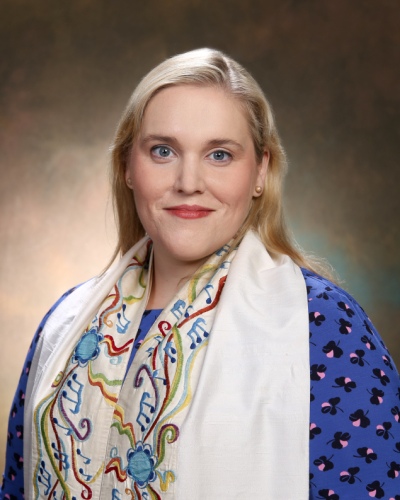Shabbat is a cathedral in time, Rabbi Abraham Joshua Heschel famously wrote. It is a palace of moments set aside for reflection, study, introspection, family, friends, and seeking God. I have always been struck by this mental image of a “cathedral in time.” What does that mean?
Imagine yourself standing in a cathedral. What does it feel like to have vaulted ceilings soaring overhead? Light and dances on the floor and shadows seep from corners. There is a sense that you are very small and that, somehow, the place is eternal. Majesty, magnificence, and memory surround. In a cathedral, time stands still, and busy city streets fade away within the serene silence of empty space so beautiful. In a cathedral, the sound is more alive and more vibrant as the acoustics allow sound to wash over your entire being.
If Shabbat is a cathedral in time, it is as if the world is being held at bay for a period, the busyness of life held back beyond the cathedral doors. Inside of this Shabbat cathedral, a person can be free from the obligations of yesterday or tomorrow and yet somehow deeply connected to our ancestors and descendants – the people who came before and will come after – throughout time. And in all of this, a sense of God’s presence abides. This holy space in time is forever portable. It follows us throughout our lives, wherever we are. We can access it each week as the sun sinks behind the treetops on Friday evenings. Shabbat can be found inside of our Temple Beth El building, but also in our homes, at our dinner tables, in the way that we talk with friends and family, and in the activities who choose to engage in – or refrain from – on Shabbat.
The pandemic has reminded us that all of Jewish life: Shabbat and holidays, learning, and a sense of God’s presence is accessible to us even when we are not in our synagogue building. The pandemic has also required us to develop skills that enable us to pray and learn, lead and teach from afar. The pandemic has renewed our deep value for our physical cathedrals, from the sanctuary to the swimming pool, all while rekindling the sense that our Judaism extends far beyond the walls of those spaces, too. As it was for our ancestors, our Judaism moves with us from place to place as does Shabbat at the first glimpse of twilight.
For the summer months, we have dedicated the fourth Friday of each month to Shabbat Across Charlotte, an experiment that will encourage each one of us to think outside of the box for our personal Shabbat experience each month. On the fourth Friday, TBE services will be offered online only via zoom, leaving space to encourage our community to invest in our home-based and creative Shabbat practices. Perhaps you want to plan a Shabbat dinner with your TriBE or other families from your child’s TBE Religious School class? Perhaps you want to take a hike and listen to services as you drive home from the mountains? Perhaps you want to join a member of our clergy team for an offsite Shabbat experience on these weeks? Yoga, nature walks, crafts, pool time, potlucks in neighboring communities are just some of the ideas in the works. You can choose to join together for a full service via zoom at 7:30 on these fourth Fridays. Shabbat Across Charlotte is about designing a personal Shabbat experience that is meaningful to you for the moment in which we live. It is about deepening your relationships and luxuriating in the palace that is time set aside for rest, renewal, and reflection.
As I write this, one Shabbat Across Charlotte Friday has already passed and we have two more to look forward to. On the fourth Friday in June, Rabbi Klass gathered with TBE community members of all ages for a Pride-themed potluck in Kilborne park. Those present offered Shabbat blessings and made kiddush, sanctifying Shabbat and their time together. Over good food and great conversation, sparks of kindness and curiosity ushered in that sense of humanity that is eternal and that sense of eternality that is Shabbat, a beautifully constructed cathedral wherever we are, urging us to pause long enough to sense that we are a part of something much greater than ourselves.




